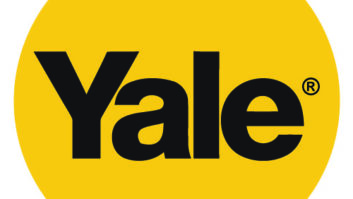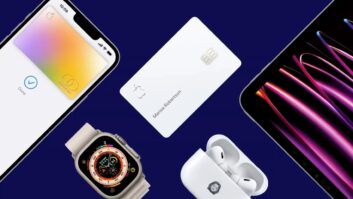Sales of authorized WMA downloads are doing “better than initially expected,” but they’d be doing even better if the consumer electronics industry offered easier-to-use headphone stereos and promoted them heavily, according to a B to B company that puts other companies into the download business.
Authorized digital downloads, however, “will ultimately penetrate the mainstream,” and in 10 years consumers will be able to “get what they want when they want it” on whatever device they want, whether a PC, a cable set-top box or over the air via cellular download, said Alan McGlade, CEO of MusicNet, which provides music download infrastructure to 14 companies, including AOL, Yahoo, Virgin, HMV and Trans World Entertainment, and cable operators such as Adelphia, Charter and RCN.
Only two of the necessary three components are in place for WMA downloading to take off, McGlade told TWICE. They are the accelerated pace of broadband adoption in the home and the entry of numerous name brands such as Yahoo into the download business. Consumer electronics companies, however, have failed to deliver the third component: “great devices” that are easy to use and are heavily promoted, McGlade said.
The device situation is even less than ideal for the WMA subscription-download market, which is suffering “slower than expected” growth, said McGlade. He also cited consumer confusion over subscription downloads as contributing to slow subscription growth. “No one has explained it to the consumer,” he contended.
Only 38 of 90 portable devices, including cellphones, are equipped to play authorized downloads of subscription-based WMA downloads, and another 11 require firmware upgrades to play subscription music, according to the Microsoft Plays For Sure Web site. The number of easy-to-use compatible devices, however, is much smaller that the number of compatible devices, he contended.
The subscription-download model, said senior business development VP Paul Greenberg, is a compelling model whose viability has been enhanced in part by satellite radio, which has proven consumers’ “appetite for subscriptions.” Music downloading “is about access, not ownership,” he contended, pointing out that with a subscription service, consumer can access any one of the more than 2 million MusicNet songs for $9.95 a month rather than pay up to 99 cents for each song. With a subscription-download service, he added, consumers “spend less time weighing a purchase proposition and more time exploring music.”
As for ownership of a paid-for download, he noted, “even if you buy a download for 99 cents, you can’t resell it.”
By the first quarter, consumer electronics retailers will more aggressively promote subscription downloads by partnering with subscription service providers to package compatible portables with a particular provider’s service in much the same way that Apple promotes the iPod and the iTunes download service, Greenberg said. “Some retailers are trying to do this for Christmas,” he noted, but are being hampered by limits in the selection of easy to use compatible devices.
Suppliers, however, also have to do their part to boost sales of subscription-compatible devices, McGlade said. Suppliers have to make their devices “simple to use with portable subscription services” by getting design input from service providers, he said. Then the suppliers must market the device as compliant with that particular subscription service.
Improved merchandising at the retail level will also boost sales of devices compatible with paid-for and subscription download sales, McGlade added. Retailers in the United Kingdom he noted, segregate devices by the services with which they’re compatible and train their staffs to know which devices are compatible with the different services.
The continued presence of unauthorized peer-to-peer services “holds back” authorized services “a bit,” McGlade admitted. “Piracy won’t stop.” Nonetheless, many consumers will migrate in greater numbers to authorized services to ensure a better experience that includes music downloaded with “consistent quality,” the avoidance of downloaded spyware and viruses, and the ability to download an album at a time rather than be limited to a song at a time, McGlade contended.
Greenberg pointed out that the most aggressive industry projections call for a third of music-industry volume by 2009 to come from authorized downloads, but “the tipping point could come sooner” if pricing models change, downloading spreads beyond PCs to cellphones and set-top boxes, and all portable devices become compatible with all download sites, reducing consumer confusion and frustration.
Like CD prices, McGlade explained, download prices will vary. Radio station versions of songs, for example, might be sold in advance of the CD release and be priced at a premium, he said.
Authorized downloads to cellphones have already been launched by Sprint PCS, and downloads direct to cable set-top boxes or to a Tivo-like device might launch as early as next year, McGlade told TWICE.
MusicNet is talking to set-top box makers, in some cases in conjunction with cable companies, to deliver downloads to consumers via cable TV tuners. MusicNet is also working with Music Gremlin to enable downloads over a Wi-Fi network at home or in public places direct to a portable player, McGlade added.
For now, MusicNet doesn’t plan to support direct-to-cellphone downloads because the wireless industry hasn’t settled on a single digital rights management (DRM) technology, whether a de facto standard or approved by an industry association such as the Open Mobile Alliance (OMA) and endorsed by the music industry.
OMA, Greenberg noted, missed a self-imposed April 2005 deadline to agree on a 2.0 standard. “The music labels weren’t happy with OMA 1.0 because it wasn’t secure or flexible enough.”
In the short term, MusicNet continues to be codec-agnostic and is open to adopting any major codec, including Apple’s FairPlay-protected AAC format, but to date Apple isn’t interested even though it would generate “enormous licensing revenues,” Greenberg said.
In the long term, MusicNet sees no threat from authorized P2P services such as the new iMesh, which is transitioning from an unauthorized to an authorized P2P service that essentially turns consumers into authorized music distributors while providing royalties to the music companies and artists. Such services can’t dramatically under the prices of existing authorized download services, McGlade said, because they have the same “core distribution costs” as MusicNet. The costs include the management of licensing rights, disbursing royalties on a monthly basis, and operating servers, which must “seed” the P2P network with authorized songs.













